What is the purpose or intent of Dhrupad?
Umakant Gundecha: Dhrupad is the search of the ultimate, the search for a true sound, the eternal sound, the sound of the cosmos. Dhrupad is Nada Yoga - the yoga of sound. It is the best way to get yourself into a calm, peaceful state of mind.
Ramakant Gundecha: In Dhrupad, we sing the notes in their pure form. Both the performers as well as the listeners experience the life energy in these notes. Dhrupad is therefore really about going deep into the essence of everything, including oneself. You can see yourself through Dhrupad.
How did Dhrupad happen to you?
Umakant Gundecha: We strongly believe that destiny decides what one pursues and accomplishes. We were exposed to different forms of classical music while pursuing our Master’s degree at the Khairagarh University in Chattisgarh. We realised there that Dhrupad is a true representative of what Indian classical music stands for. By the grace of God, we then got an opportunity to learn Dhrupad under the guru-sishya parampara from the legendary Ustad Zia Fariduddin Dagar and Ustad Zia Mohiuddin Dagar, courtesy a scholarship from the government of Madhya Pradesh. We have been wedded to Dhrupad since then.
But how did singing together happen?
Ramakant:Honestly, we have always been singing together right from our childhood, be it bhajans or old Hindi movie songs. In 1969, when I was just nine, and Umakant was 11, we joined the Madhav Music College in Ujjain together. We were in the same class all the time. We trained together under our gurus, Master Ram Narayan Jina, Pandit Pramod Shastri and Pandit Ramakant Dubey.
Akhilesh, my youngest brother, also pursued his Master’s degree in vocal music but was very interested in rhythm. He took to the pakhawaj (percussion) so that we can all perform together as one unit - three bodies, one music.
Dhrupad should exist till the cosmos does, and we strongly believe it will
So Dhrupad’s in the family! If Dhrupad were a personality, how then would you describe it?
Ramakant:Dhrupad is the emperor of music. It is omniscient and omnipresent. It has a majestic personality.
Umakant: The style of Dhrupad we sing is called "sadharani geeti" and was formulated by Ustad Zakiruddin Khan by amalgamating seven different styles of singing that existed during the Vedic period. This innovative amalgamation makes it a complete musical personality and in a sense, a fantastic representation of Indian classical music in its purest form.
What about your individual personalities? Are you, in a sense, similar by virtue of engaging with the same kind of music?
Umakant: You can say we are almost similar simply because we live, travel and sing together all the time. However, we allow ourselves the freedom to explore our individual musical personalities while performing, but within the framework of Dhrupad.
As siblings, we understand each other very well. There is no conflict of egos. We may be three bodies but we have a unified musical soul. There is only one performance. Keeping this in mind, each of us is free to explore his musical personality and perform well. In the end, the Gundecha Brothers benefits as a whole, not Umakant or Ramakant or Akhilesh Gundecha individually
How similar or different are your personalities in comparison to that of Dhrupad? Do you see parallels between the art from and who you are as people?
Ramakant: If you are true to the art you pursue, it will certainly reflect in your personality. Our case is no different. Dhrupad is our life. We are immersed in it all the time.
Umakant: Dhrupad is like the mighty Himalayas. We are literally tiny men in front of it.
Talk to us about the role of sibling dynamics during a performance?
Ramakant: : As siblings, we understand each other very well. There is no conflict of egos. We may be three bodies but we have a unified musical soul. There is only one performance. Keeping this in mind, each of us is free to explore his musical personality and perform well. In the end, the Gundecha Brothers benefits as a whole, not Umakant or Ramakant or Akhilesh Gundecha individually.
How does it work in the parts where improvisation is required and there are two people singing and not one?
Ramakant: Improvising in duets is certainly not easy, though it does have its advantages. When we sing individually, we can improvise the way we want. But when we sing together, our wavelengths have to match perfectly. Any difference can be spotted very easily. Once that synchronisation is achieved, things become easy. We complement each other. We get inspired by each other and this helps us improvise better.
What are your unique strengths? How do you draw upon them?
Umakant: Human voice is really God-given. We have different voices. Our musical personalities get expressed through our voices. We may be singing the same piece but it will appear different because our individual vocal characteristics vary. We try to use our voices in a way that results overall in the best possible musical output.
Ramakant: We introduced the concept of "swar samvaad" in duet singing in Dhrupad. In this, we converse with each other while exploiting the consonance among different musical notes.
Umakant: In addition to music, we also converse with the audiences via "hasta mudras" (hand gestures), our facial expressions and our eyes. These aspects help us further clarify our musical thoughts to our audiences.
Having performed together for so many years now, what are some key aspects you value in your partnership?
Ramakant: We value every single thing in our partnership. But Dhrupad is what we value the most. Many siblings pursue their own different paths. It is Dhrupad that has kept us together.

Dhrupad is the emperor of music. It is omniscient and omnipresent. It has a majestic personality
Is there competition in your companionship?
Ramakant: Of course. There is healthy competition. We would like to term it as inspiration. Collaborations cannot go on for long unless people keep getting inspired by each other. This inspiration along with mutual understanding and lack of individual ego is what keeps us going.
What impact has Dhrupad had on your lives? Are there any qualities of the genre that have become a way of life for you?
Ramakant: We have been performing Dhrupad for about 36 years now. It has had a deep impact on us. If you involve yourself in any art form with complete dedication, it changes your life. We can certainly feel the way things have changed in our life. Our thinking, our philosophy, our lifestyle - everything is impacted by Dhrupad.
Umakant: Music has both attraction and attention value. Attraction exists for a short period of time. Attention value is what lasts long. We pursue the attention value in Dhrupad and in everything else.
Is the pace of your lives in Bhopal similar to that of a Dhrupad – slow and languid - performance? Is that why you chose that as a place to settle down?
Umakant: Yes. We originally come from the city Ujjain which has a totally different pace and lifestyle. We got a lot of opportunities to shift our base in the early days of our career to Mumbai or Delhi. Even our teacher told us to shift to Mumbai in the early 1980s. But we couldn't bring ourselves to leave Bhopal.
Ramakant:We are totally in love with Bhopal. It is a beautiful city with less of unwanted elements like pollution and traffic and more of things we love like greenery, lakes and hills. It is centrally located in India and well-connected to other places. The ups and downs of the city's topography are in sync with that of the music. Our life in Bhopal is in complete harmony with our inner sense for music and for Dhrupad. It is very difficult to describe this completely in words. In short, we feel Dhrupad is the best music and Bhopal is the best place to live and pursue it in the plains.
How amenable is Dhrupad to collaboration with other styles of music? What has to be retained and what, if any, changed?
Umakant:Dhrupad encompasses everything. As a performer of this art form, one should have the vision to see everything in Dhrupad and from the perspective of Dhrupad. It is your window to the world. Once you do that, you can experiment by remaining within the framework of Dhrupad. Nothing has to change in Dhrupad in collaborations. If something changes, it ceases to remain Dhrupad.
Is that how you have managed to blend purity and progress so well?
Ramakant:I think we are the Dhrupad musicians who have collaborated the most with other art forms. People may come to these collaborations with a primary exposure to some other art form. But once they get in, they experience Dhrupad and it inhabits their mind space. To do this, we do not dilute or pollute Dhrupad in any way. We interact with other art forms, but only from within the framework of Dhrupad.
Do you ever encounter a conflict between maintaining this persona vs making any tweaks for commercial success?
Umakant: Commercial success has never been our priority. We are fully aware that we have a limited audience, but one that is growing every day. Dilution or pollution of the art form may accelerate this growth and make us more successful commercially. But we will never even attempt it. We want to preserve the sanctity of Dhrupad. Dhrupad's greatness will eventually make everyone listen to it.
You teach this art form to a lot of students. Are you able to inculcate this in your students?
Umakant: It is definitely a challenge. We have been teaching students from more than 30 countries in the residential programme at our institution, our Dhrupad Gurukul in Bhopal. We treat them like our children. We help needy students with scholarships. We strongly believe in the guru-shishya parampara and teach students one-on-one. This helps us focus, assess the quality of a student well, and bring out the best. We believe this helps us inculcate in our students, the values we stand for.
Ramakant:Our Dhrupad Gurukul is the only one-of-its kind in the world. About 50 students from many States of India and abroad learn from us under the guru-shishya parampara. We have trained about 25 young competent Dhrupad musicians from our gurukul. Every year, we organise the Dhrupad Utsav, a festival that showcases the best of young talents in Dhrupad today.
What legacy would you like to leave behind?
Umakant: All the work we do, whether we teach or perform, is aimed at passing on the tradition we have received from our gurus to future generations. Dhrupad should exist till the cosmos does, and we strongly believe it will.
Interviewed by R Ramkumar
1 comments Comments





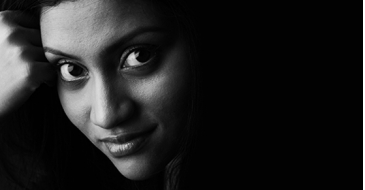
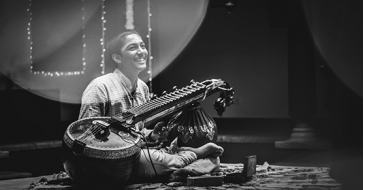
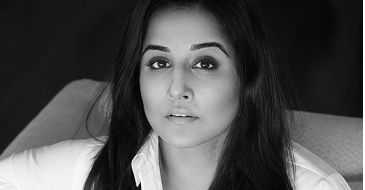
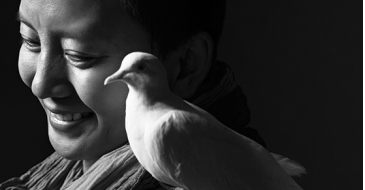
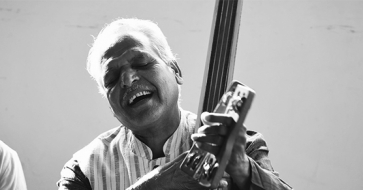
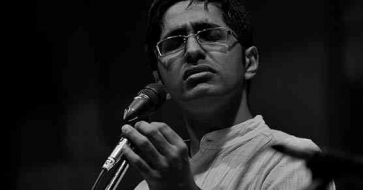
Yan
February 26, 2018